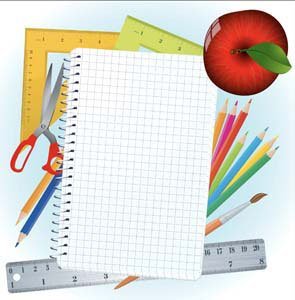Patient education: Dyslexia (The Basics)
What is dyslexia?Dyslexia is a problem that makes it hard for a child to learn to read. Dyslexia has nothing to do with how smart a child is. Children with dyslexia can be just as smart as or smarter than other children their age. But they have brain differences that affect the way they process written words. They have trouble understanding the connection between letters (or groups of letters) and sounds.
What are the symptoms of dyslexia?The main symptom is not being able to read as well as other children who are the same age or in the same grade. The signs of dyslexia are different for children of different ages.
In preschool, children with dyslexia often have trouble:
●Learning nursery rhymes
●Playing rhyming games
●Pronouncing words (they can confuse words that sound alike)
●Learning and remembering the names of letters
In kindergarten and first grade, children with dyslexia often:
●Have trouble learning letters
●Can’t read words and have trouble spelling
During the early school years, children with dyslexia have trouble spelling and reading aloud. They read very slowly, guessing at or sounding out words they do not know, and they make a lot of mistakes. They are not good at naming objects, but they can recognize and point to objects. (For example, they might not be able to name a clock if you point to it and ask what it’s called, but they can point to the clock if you ask where it is.) Despite their differences, children with dyslexia are often very smart. They often understand a lot of different words and they are curious and have a good imagination.
Because children with dyslexia have trouble reading, they sometimes avoid reading. This makes the problem worse because they fall further behind other kids their age. As they get older, their trouble with reading leads to problems in school. That’s why it’s so important to get children with dyslexia treated early.
Will my child need tests?Yes. If a doctor, nurse, or teacher thinks that your child might have dyslexia, your child will need an evaluation of his or her reading. This is usually done by an expert in reading or education. It can be arranged through the school system or by your child’s doctor or nurse.
A doctor, nurse, or other expert might also test your child for other learning problems and for health or emotional problems, such as worrying or feeling sad or depressed. Problems in those areas can affect how well a child can read or learn.
How is dyslexia treated?Dyslexia is treated with “special education.” This is when a child learns from a teacher with special training.
When working with children with dyslexia, special education teachers focus on helping the children learn:
●The names and sounds of letters
●How different words and parts of words look and sound
●How to break up words into different parts
●How to put different parts of words together like a puzzle
●The meanings of many different words
Treatment can also involve giving children extra time to take tests or do certain tasks.
The earlier your child gets tested and treated for dyslexia, the better he or she will do in school in the future.
Is there anything I can do to help my child?Yes. The most important thing you can do is to spend time reading aloud with your child. There are products on the market that claim to help children with dyslexia, but they have not been proven to work.
If your child has trouble in school, try to remember that the problem is not that your child is lazy. Your child’s brain has differences that make it hard for him or her to read. This can make it hard to do all sorts of schoolwork. But hopefully with the right treatment, your child can learn to work around his or her differences.
